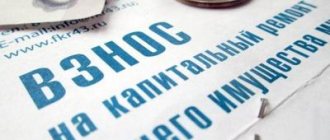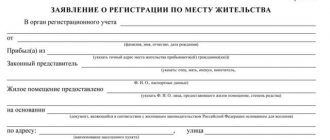Parts of pension; which one is subject to inheritance
The law provides for the inheritance of the pension savings of the deceased. The pension is divided into 3 parts:
- basic;
- insurance;
- cumulative.
The heirs have the right to lay claim to the accumulative part, which is formed over a long period of time and can reach large sizes.
Cumulative part of pension
The formation of a funded pension is available to citizens born in 1967 and later. The storage part consists of:
- insurance premiums by the employer, 6% of the citizen’s earnings, but not more than 415,000 rubles. annually;
- contributions to the pension fund on a voluntary basis by a citizen;
- contributions from the state in the form of co-financing;
- income from the testator's investments.
How to receive the funded part of a deceased relative’s pension - According to the law
Many citizens of the Russian Federation ask the same question - if a relative of retirement age dies, is it possible to receive the funded part of his pension or not?
In what cases is this possible? How to apply? What documents need to be prepared? What to do if PF employees wrongfully refused to receive a payment?
Let's consider all the questions in more detail.
Is this procedure possible?
If an insured citizen of the Russian Federation passed away before the payments were assigned to him, or while in retirement he continued to work and made all the necessary contributions, the heirs have every right to claim these payments in order of priority, as in the case of inheriting other property.
If a person voluntarily decides to receive payments on an indefinite basis, payments will not be made.
If a citizen has declared that he intends to receive the funded part of pension payments over a certain period, the heirs have the right to formalize the receipt of exclusively the residual amount of savings that the deceased pensioner has not yet received.
Note!
The issue of transferring the rights to use pension savings is discussed in more detail in paragraph 12 of Article No. 9 of Federal Law No. 173 of December 2001.
This law describes in great detail the rules for spending the financial capital of the funded part of citizens after their death. Moreover, only a limited number of persons may have such a right.
The issue of these payments is discussed in detail in Federal Law No. 173 , in particular in Articles 12 and 16.
Based on these regulatory documents, we can say with confidence that the right to receive this payment.
Heirs of the 1st stage :
- spouse of the deceased person;
- children or parents (whether adopted or biological).
The second line of heirs includes:
- brothers;
- sisters and other relatives.
In addition, it is worth remembering one nuance: there are several categories of citizens who have a guaranteed right to receive this payment.
These include citizens who were once dependent on a deceased pensioner for one or more years. But there are also conditions here that are important to always remember. Moreover, heirs must know about them.
There are situations when a person, although he has a guaranteed right to receive the funded part of the pension, will not be able to receive it.
The main reason for this is the recognition of the fact of an unworthy heir.
However, such a decision can only be made during a court hearing.
Factors that may influence the adoption of this type of judicial decision are:
- recognition of the fact of any illegal action against the testator. For example, attempted murder or possible intentional harm to health;
- lack of evidence of fulfillment of one’s duties directly in relation to the testator. This could be non-payment of child support.
On the subject: How to Put Dollars on a Tinkoff Card
In addition, there may be other important grounds for refusal to receive the funded part of the pension payment. For example, if several relatives are entitled to receive this payment, it will go to both of them in equal shares.
If there are no controversial situations, then there is no need to appeal to a judicial authority.
In addition, according to the laws of the Russian Federation, citizens have every right to draw up a will , which can help in deciding who is entitled to receive pension savings after death.
A will can also be challenged during a court hearing, but if everything is done by legal means, then the court’s decision will definitely be on the side who is entitled to this sum of money under the document.
Registration procedure
Currently, the entire procedure for applying for and receiving the funded part of pension provision is regulated by Decree of the Government of the Russian Federation No. 471 of November 2011.
The algorithm is as follows:
- Collection of the necessary list of documents.
- Contacting the authorized body.
- Submission of documents.
- Waiting for a decision to be made.
- Receiving payment.
Applicants for receiving this payment will have to contact the territorial department of the Pension Fund in the office.
submit documents in the following ways:
- by personal contact;
- with the help of a trusted person;
- postal delivery. In this case, it will be necessary to send by registered mail with an inventory.
Application deadlines
According to the laws of the Russian Federation, you can receive the funded part of the pension within the first 6 months from the moment its owner passes away.
After a positive decision has been made to provide the pension savings of the deceased, payment is made no later than the 15th day of the following month after the required package of documents was submitted.
When to make a decision on extradition or refusal
After submitting the required package of documents, the decision by the Pension Fund employees is made within 5 calendar days .
Grounds for refusal
The key factors that can negatively affect a positive decision are considered to be:
- the package of documents was not provided in full;
- errors when drawing up an application;
- lack of grounds for receiving.
How to make an application
Applications for receiving pension savings of the deceased.
When drawing up an application, you must remember that the presence of any typos or blots in it is unacceptable. If this is the case, the refusal can be received instantly.
The application is drawn up in the prescribed form, which must contain the following information :
- Full name of the applicant;
- relation degree;
- passport information;
- reasons for receiving payment;
- bank details for transferring a sum of money;
- residential address;
- date of birth;
- number and signature of the applicant.
Nuances
The entire process of receiving pension savings is carried out on the basis of Government Decree No. 471 of November 2011.
It is this document that describes in most detail all the nuances of registration and receipt.
The law applies to both public and private foundations .
The most important!
Among the nuances, one can highlight the fact that PF employees may require the provision of an additional list of documentation, which is not prescribed in the laws of the Russian Federation.
If this is the case, you can immediately write a complaint to law enforcement agencies or contact a judicial authority, since such a requirement is illegal and is subject to criminal or administrative liability.
List of required documents
To receive the funded portion of a deceased person’s pension, it is necessary to prepare a package of the following documentation :
- original and copy (of all completed pages) of the passport. If we are talking about a minor - the original and a copy of the birth certificate;
- any documents that can confirm the degree of relationship with the deceased person;
- if the registration is carried out by a representative - a notarized power of attorney;
- a certificate issued by the guardianship authorities regarding the refusal to receive payments to minors (if this is the case);
- original and copy of the court decision to restore the missed period for submitting the required package of documents (if this was the case);
- original and copy of the pensioner's death certificate;
- SNILS number of the deceased (if available);
- details of the bank account to which this amount of money should be transferred.
As you can see, the registration process itself is quite simple and does not take much time. It is enough just to adhere to the described algorithm of actions and comply with the deadlines established by law. If there is a violation on the part of PF employees, you must immediately contact law enforcement agencies.
For information on the rules for inheriting the pension savings of a deceased spouse, see the following video:
We recommend other articles on the topic
Source: https://1pozakonu.ru/kak-poluchit-nakopitelnuyu-chast-pensii-umershego-rodstvennika.html
The procedure for inheriting a pension
Inheritance of pension savings is impossible under a will. The heirs receive the funded part either by law or provided that the testator has drawn up an application to the Russian Pension Fund. Applications are also accepted from non-state funds. In the application, the testator indicates the successors to whom he transfers the rights to receive pension funds in the event of his death. If a pensioner submits several applications for receivers, the latest is taken into account.
The payment of pension savings to legal successors is discussed in the video
Conditions for pension transfer
Inheritance of a deceased person's pension is permissible only if the testator was born after 1967. Citizens born before this date do not have a funded part of the pension. Also, inheritance is allowed only if the testator either did not have time to use the funded part of the savings, or, having reached retirement age, did not want to do so.
In Art. 23 of the Federal Law of December 17, 2001 N 173-FZ “On Labor Pensions in the Russian Federation” states that the accrued amounts of labor pensions that were due to the pensioner in the current month and remained not received due to his death in the specified month are not included as part of the inheritance. These amounts are paid to his family members who lived with him and applied for payment within 6 months. On March 1, 2002, Part Three of the Civil Code of the Russian Federation came into force, where in Art. 1183 states that family members living with him and disabled dependents have the right to pension amounts not received by the testator during his lifetime. They must submit claims for payment within four months from the date of opening of the inheritance.
The following have the right to inherit the funded part of the pension:
- First priority legal successors: children (including adopted children), spouses, parents (including adoptive parents).
- Heirs of the second stage: grandparents, sisters, grandchildren.
- Legal successors according to the application: persons whose names and shares the testator indicated in the pension fund (may not be blood relatives of the deceased).
Heirs will not be able to claim a relative’s pension if he managed to use these funds (or part of them) before death.
The procedure for receiving a pension as an inheritance
Deadlines
In order to receive the pension payments of the deceased, his successors must submit a corresponding application to any territorial body of the Pension Fund of the Russian Federation within six months after his death, otherwise they will then have to restore the missed deadline.
To receive the funded part of the pension, the heir should contact any branch of the pension fund closest to his place of residence.
You will need a small package of documents and an application for the issuance of funds. If there are several heirs, the savings are divided equally between them (in the absence of expression of the will of the testator).
The pension fund has the right to give all funds to the first applicant and oblige the cash to be divided among the remaining heirs (learn about the shares of heirs by law in the inherited property from the article https://nasledstvo.today/3701-vydelenie-dolei-naslednikov-po-zakonu-v-nasledstvennom -imushhestve-razdel-obshhego-imushhestva-suprugov). Payment is made once, in full. If the deadlines for accepting an inheritance are missed, the applicant is free to restore them in the standard manner, as in cases of inheritance of other types of property. Have a question about inheriting a pension? Ask it in the comments
Prosecutor's Office of the Kamchatka Territory
- 15.09.2015
- The prosecutor's office explains
The Social Insurance Fund of the Russian Federation, in a letter dated July 8, 2015 No. 02-09-11/15-11127, provided an explanation on the issue of payment of temporary disability benefits not received by the insured person during his lifetime due to his death.
According to the clarifications, sick leave payments for a deceased employee can be received by members of his family who lived with him or her, as well as disabled dependents (children, parents), regardless of whether they lived together with the deceased or did not live.
The letter notes that compensation for the insured person’s lost earnings (payments, rewards in favor of the insured person) or other income upon the occurrence of an insured event is one of the goals of compulsory social insurance. In addition, the state guarantees compliance with the rights of insured persons to protection from social insurance risks.
Thus, in accordance with the Federal Law of December 29, 2006 No. 255-FZ “On compulsory social insurance in case of temporary disability and in connection with maternity”, an insured event under compulsory social insurance in case of temporary disability and in connection with maternity is also recognized temporary disability of the insured person due to illness or injury. In connection with loss of ability to work due to illness or injury, insured persons are provided with temporary disability benefits. In this case, the basis for assigning and paying benefits is a certificate of incapacity for work.
According to the requirements of Art. 183 of the Labor Code of the Russian Federation guarantees the payment by the employer of temporary disability benefits to the employee. Article 140 of the Labor Code of the Russian Federation establishes that upon termination of an employment contract, payment of all amounts due to the employee from the employer is made on the day of the employee’s dismissal. Wages not received by the day of the employee’s death are issued to members of his family or to a person who was dependent on the deceased on the day of his death.
The procedure for issuing certificates of incapacity for work, approved by order of the Ministry of Health and Social Development of Russia dated June 29, 2011 No. 624n, provides that in the event of the death of the insured person during a period of temporary disability, the certificate of incapacity for work is closed with the date of death.
Accrued amounts of benefits for temporary disability, pregnancy and childbirth, monthly child care benefits not received due to the death of the insured person, in accordance with Part 5 of Article 15 of Law No. 255-FZ, are paid in the prescribed manner.
In addition, civil legislation establishes the procedure for family members of a deceased insured person, as well as his disabled dependents, to receive unpaid amounts, including temporary disability benefits, provided to the insured person as a means of subsistence.
Thus, termination of an employment contract due to the death of an employee obliges the employer to make calculations of all payments due, including the assignment and payment of temporary disability benefits. Accordingly, the death of an employee does not terminate the employer’s obligation to pay income not received during his lifetime, including temporary disability benefits.
By virtue of the provisions of Law No. 255-FZ, the right to receive temporary disability benefits arises from the date of the insured event and the loss of earnings for this reason by the insured person, and not from the moment the specified benefit is accrued.
In this regard, the actions of the insured person, his employer and (or) other persons, including actions to issue a certificate of incapacity for work, to apply for insurance coverage, to calculate, assign and pay benefits, are the implementation of a right that has already arisen.
Thus, in the event of temporary disability resulting in the death of the insured person, the medical organization providing treatment must draw up and issue a certificate of incapacity for work. On the basis of such sick leave, the employer must assign and pay temporary disability benefits to the family members who presented it, who lived together with the deceased insured person, as well as to disabled dependents, regardless of cohabitation.
How to process lost benefits
The procedure for applying for the balance of the deceased’s payment depends on the payer of this type of benefit. As a rule, there are only two of them:
- The Pension Fund is in charge of documents for social benefits;
- the military is dealt with by the ministries that appointed them.
Attention: the appeal should be sent to the authority that calculated payments to the deceased.
Who is eligible to receive?
The law clearly defines the list of persons who can claim to receive a pension after the death of a pensioner in Russia. In order of priority, the list looks like this:
- dependents (regardless of whether they lived together or not);
- relatives of the deceased - in the manner prescribed by the Civil Code of the Russian Federation (primarily the spouse and children of the pensioner);
- persons who cared for the benefit recipient in the last period of his life.
To receive payment for providing care to a pensioner in need of assistance, the applicant must document the fact of providing care - for example, by having an appropriate written agreement.
What documents are needed for registration?
To receive an unpaid insurance pension due to the death of a citizen, his relatives must provide the following documents :
- an application for payment of the amount accrued but not received by the pensioner (the application form is available on the official website of the Pension Fund);
- passport;
- death certificate of the pensioner;
- confirmation of family relationships (marriage certificate, birth certificate, adoption certificate, etc.);
- confirmation of the fact of cohabitation (certificate from housing authorities, copy of registration certificate, etc.);
- details for non-cash transfers if the applicant plans to receive funds to a bank account or card.
Be sure to read it! Gift agreement: how to draw up a deed of gift, who can be the donor, when taxes need to be paid
If the deceased citizen was a recipient of a military pension , then his relatives, in addition to the above documents, must additionally submit to the relevant law enforcement agency (military registration and enlistment office) the work book and military identification card of the deceased.
In special cases, other documents confirming certain circumstances, for example, a notarized power of attorney, court decision, etc. After the documents are accepted, employees of the relevant authority check the authenticity of the documents and make a decision - to transfer funds to the applicant or to refuse payment.
What documents should the relatives of a deceased military man or WWII participant submit?
Slightly different conditions are laid down in Article 63 of Law No. 4468-1 for relatives of a deceased military man. Thus, his shortfall in material support is transferred to his relatives, who carried out the burial of this person (at their own expense). This condition leads to the need to collect additional information:
- the fact of burial is confirmed by a document from the local government;
- it must be issued in the name of the applicant;
- the remaining papers are selected according to the above algorithm.
Attention: the legislation separately talks about the rights of widows of WWII veterans, to whom the Ministry of Defense also allocates money.
Additionally, widows have the right to receive the deceased’s pension and other preferential payments to him. To do this, the following documents must be attached to the application:
- husband's certificate stating that he was a participant in the Second World War;
- certificate:
- about the death of her husband;
- on the conclusion of marriage bonds;
- certificate of family composition;
- passport.
What type of pension can you get?
You can claim the lost payment as:
- insurance social benefits;
- the savings part (discussed below);
- military pension;
- alimony;
- payment of compensation for harm;
- other social benefits.
These amounts are not part of the inheritance estate, and potential heirs cannot claim them.
When can I claim my pension?
For those applying for payment of a pension after the death of a pensioner, the law sets a deadline of six months. This time period is directly related to the pause period of the same duration for applicants to receive the inheritance
What happens if you don’t receive money on time?
If, in due time after the death of a pensioner, persons from among his relatives do not apply for his money, then this amount becomes part of the inheritance. Accordingly, it will be distributed among all available heirs by law or will.
Attention! If the pensioner has no heirs, then the property constituting the estate becomes escheated and becomes the property of the state.
In cases where the heirs missed the required deadline for accepting the inheritance, it is possible to restore it if there are good reasons. The restoration of the term occurs in court.
After the death of a pensioner
There are several types of payments that a person can receive for a deceased relative.
Prepare the necessary documents:
- Labor pension transferred to an elderly person monthly;
- Voluntary savings pledged by the pension fund;
- Old-age payments that are not affected by length of service;
- Disability benefits, survivor benefits or benefits provided to large families;
- Any kind of social benefits.
The procedure for receiving an inherited pension and pension savings of the deceased to his heirs
The procedure for receiving payments can be divided into several stages. First, you should collect all the necessary documents and submit them to the pension fund at the place of registration of the deceased citizen.
The following data will be needed:
- A document that proves your identity
. It depends on the nationality and age of the close relative. Most often it is a passport or birth certificate; - Evidence confirming your relationship with this person
. They can also include a birth certificate, as well as a certificate of family composition or a marriage certificate; - Often, in resolving financial issues, they resort to the help of a specialist; if this is required, then it is necessary to provide an opinion from a notary
; - After the death of a pensioner, many relatives begin to divide property; if the case goes to court, then it is required to provide a certificate about his decision or about the extension of pension savings
; - Death certificate of a pensioner
; - A certificate from the pension fund
about his personal savings.
Submit documents to the territorial office of the Pension Fund of Russia
With these documents within five working days
You should come to the legal authority and write an application to receive benefits.
- Pension fund employees accept documents provided to them from relatives of a deceased pensioner. If this list is incomplete, then they ask you to bring the missing certificate for them. Within a month, specialists make decisions on the payment of benefits;
- If required, the sum of money is divided into several shares, depending on the number of heirs having an equal degree of relationship;
- Employees determine the total amount that belonged to the pensioner, taking into account all additional payments; if one of the heirs refused it, then his part is also distributed among the remaining relatives who are entitled to it;
- Next, the official makes a decision on the payment or refusal of the pensioner’s funds to his relatives.
Last stage of the procedure
- This is directly the payment of funds in a certain amount to relatives. According to the law, it must occur no later than the 15th day of the next month, which occurs after the death of the pensioner. If within the specified period the relative has not received the amount in full, then he has the right to contact government authorities to clarify the circumstances.
If no one applied for the unreceived pension
There are also situations when a relative of a pensioner: husband, wife, children or other relatives, for certain reasons, did not receive a pension for a deceased family member - father, mother, etc.
This can happen for several reasons:
- Sudden death.
As a result, stress and turmoil arise and the relative simply forgets that he is entitled to receive funds; - Ignorance of the law.
Many people simply do not realize that any payments are intended for them; - Temporary residence in another city, region or country
. Perhaps this is the most compelling reason, since the relative did not have the opportunity to receive letters from the pension fund.
Employees of this organization strongly recommend receiving benefits for a deceased person. Within six months from the date of death, they take all measures to notify his relatives about this, calling, sending notifications and letters. If within six months none of the relatives show up, then according to the law the total amount goes to the general inheritance from this person.
If a pensioner bequeathed all the property to one person, then it will be impossible to return his share of his benefits after this period. The heir himself can receive payment only after submitting a legal document, which must be drawn up by a notary.
Who has the right to claim the insurance portion of the deceased’s pension?
Receipt of part of the deceased's pension by his heirs can only be carried out according to the rules established by law. The grounds for payment of pension savings accumulated in the individual account of the deceased may be:
- application for distribution of the accumulated pension amount;
- right of inheritance.
There is a significant difference between these options: according to the application, monetary savings can be inherited not only by relatives, but also by strangers who were chosen by the deceased.
The second case assumes that only close relatives can receive the insurance portion of the deceased’s pension. The process of inheriting an insurance pension is carried out by distributing the accumulated amount among the heirs of the deceased.
Important! When inheriting, the ability to work and age category of potential heirs are not taken into account.
Lawyers define the following family ties related to the first priority:
- children of the deceased;
- spouse;
- parents (adoption is also taken into account);
- sisters and brothers;
- grandmothers (grandfathers);
- native grandchildren.
If before his death a citizen has drawn up documents that indicate legal successors or heirs, problems usually arise with determining who receives the insurance pension of the prematurely deceased. Things are completely different when these documents simply do not exist.
When it comes to obtaining maternity capital, things are more complicated. The following can count on receiving the savings from the deceased's pension account: the child's father or his official adoptive parent.
In the absence of the father, the right to payments passes to the children themselves, if they are adults. They have the right to receive the money due until they reach 23 years of age or until the end of their studies at one of the institutions.
If a person is included in the circle of people who are entitled to receive a sum of money from the pension savings of the deceased, he needs to contact the pension distribution authorities in due time and draw up the relevant documents.









